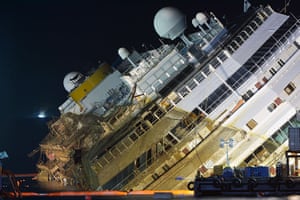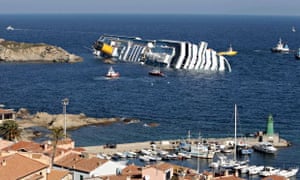Righting the Costa Concordia
On January 13, 2012 the world watched in disbelief as images emerged of the Costa Concordia cruise ship grounding on rocks off the island of Giglio, Italy. Thirty two lives were lost, a Captain shamed, and marine ecology threatened - all with millions of followers riveted to the unfolding story.
It triggered the largest maritime salvage project ever attempted spanning a period of nearly two years, all orchestrated by the minds and brawn of engineers. Over 500 workers of 26 different nationalities were involved under the guidance of two major firms; Titan an American Salvage Company, and Micoperi, an Italian Engineering Firm.
The 114,000-Ton ship was laying on its side, and in danger of rolling down over the rocks further into the ocean. Underwater platforms had to be built to "catch" the ship as it was manipulated back into an upright position.
The process of parbuckling rotated the enormously heavy ship using a series of cables and hydraulic machines for a total of 65 degrees. Initially the rate was slow, only three degrees an hour, but accelerated to nine degrees an hour as gravity chipped in and the water-loaded port-side caissons added to achieving the upright position necessary to tow the gnarled water-stained wreckage out of the Italian waters.
This first-of-its-kind feat was envisioned and carried out safely and effectively. It permitted recovery teams to go into the waters and the ship itself in search of two bodies that had not been previously recovered. Additionally, personal items were returned to family members providing some sense of closure. Perhaps most importantly, the marine waters and ecosystems were respected and preserved. Theses challenges were assessed and surmounted by the collaborative and brilliant minds of engineers - ever present and essential in the past, present and future!










No comments:
Post a Comment